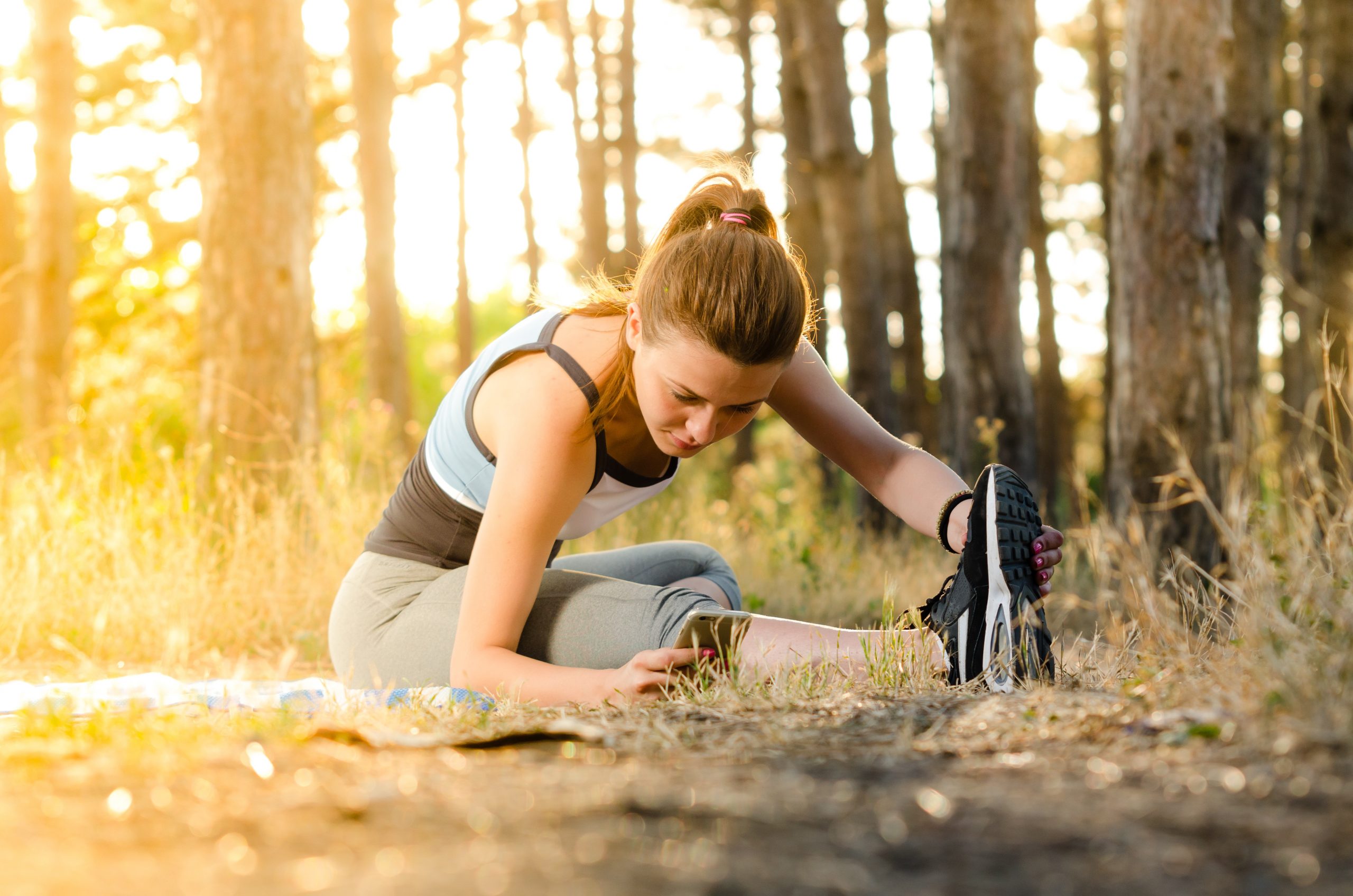One of my favorite things to do as a kid was climb on the jungle gym and hang upside down. I grew up taking dance and gymnastic classes, riding my bike, playing tennis and cheerleading. Competitive team sports weren’t really my thing, but I liked to be active and push my body to do new things.
After high school, I left behind any regular form of exercise. I had a brief flirtation with yoga in my early 20s, which faded away quickly because I was more interested in going out. Once I turned 30, I settled into a routine of joining a gym every five years or so, liking the results I saw, and then never going back after my first-year contract expired.
My weight went up and down for decades. Meanwhile, my muscle tone, flexibility and cardiovascular health declined steadily thanks to my smoking, drinking and overall sluggishness. Sometimes when I was drunk, I would bust out a few cartwheels, trying to get in touch with my former spunky self. I usually regretted this the next morning as I nursed a sore back in addition to my hangover.
Did the girl who liked swinging from the monkey bars still reside within me, or had she been run out of town by the woman who preferred lounging on the couch?
Slowly Warming Up to Physical Activity
When I finally quit drinking at the age of 51 (having ditched cigarettes eight years earlier), I couldn’t help but wonder if alcohol was responsible for stealing my athletic spark. Maybe my youthful energy would have faded away even without all that wine. Maybe not. Either way, I wanted to know.
I was gentle with myself in those first few months of sobriety—not drinking was the only challenge I could handle at that point. After about five months, I started doing yoga at home with YouTube videos. I’ve always been my own harshest judge, and I did not want to put my weak body and lack of ability on display.
Sure enough, I was horrified at how inflexible I had become—but I guess that’s what 30 years of sitting on your butt gets you! Slowly, my muscles and joints started warming up. I found that I liked focusing on my breath, which is a helpful technique for any occasion when stress arises. But I confess that even after a year of yoga I don’t yet dash to my mat every morning or evening.
At the beginning of 2018, I decided I was ready to join a Pilates studio. I was fascinated with all the fancy equipment, and the feedback from the teachers was so helpful. Sadly, I uncovered even more evidence of how far my body had deteriorated. My arms were wobbly, my abs nonexistent. I felt like an old wagon with a bunch of loose screws and wheels that might fall off at any moment.
I eventually started taking yoga classes in public as well. I discovered that aerial yoga is particularly good for my stiff and achy body. Being surrounded by agile women who have been practicing yoga consistently for years, though, is not for the faint of heart.
I began drinking at age 16 partly because I was self-conscious and assumed everyone was either judging me or ignoring me. Exercising in a room full of people will bring up all those old fears, and wine is no longer the answer.
Thankfully, both yoga and Pilates call upon you to center yourself. If you’re doing it right, you will be too busy checking in with your own body to spy on your neighbor’s form. (Yes, I peek sometimes.)
The “Chicken or Egg” of Addiction and Exercise
Here I am at one-and-a-half years alcohol-free, and the not drinking part continues to get easier (well, mostly). For many of us, drinking or taking drugs are about the addictive nature of the substance, but they’re also about so much more.
If we don’t do the work of dealing with that “so much more,” we will be tempted to find a different way to cover up what’s hiding under the surface. As sobriety becomes more natural, the struggle shifts to ensuring that we don’t fall into a similar trap with shopping, food, technology, gambling, sex or some other fixation.
Like a detective, I started combing through the evidence of the past three decades, taking a hard look at how I had been choosing to spend my time. Several questions haunt me as I undertake this self-reflection: How heavily did my drinking habit influence my daily decisions? Was the life I was leading a reflection of the “real” me?
In the curious case of my physical activity, I wonder if I failed to embrace a steady exercise routine because of my drinking, or if I drank in part because it promoted the lazy lifestyle that I secretly craved.
Recovering Body, Mind and Spirit
I still don’t know if I will ever be the kind of person who truly looks forward to exercising. Some days all I want to do is nap on the couch. I make excuses and argue with myself like a stubborn child.
The benefits are indisputable, of course. Regular physical activity clearly has a vital, ongoing role to play in recovery. I already feel healthier and stronger. Mentally, I feel more grounded and stable. Being in better condition makes me more adventurous, which in turn keeps me more active and engaged in the world.
However, at my age and after so many years of inertia, I have a long way to go before I consider myself “in shape.” The perfectionist in me is yearning for an instant makeover and has been known to over exert my body despite its protests.
Right now, my wrist hurts, and I’m pretty sure I did something to both of my shoulders. Earlier this year, my IT band—which I never knew I had ’til recently—was acting up, so my Pilates instructor gave me special exercises to do, and it did clear up. But I resented every second of those tedious reps.
Is it possible to transform a person who’s been workout-adverse for decades into someone who happily chooses to move her body every day? The only way to find out is to keep pushing myself every day to honor that girl who loved to stretch and jump and reach.



